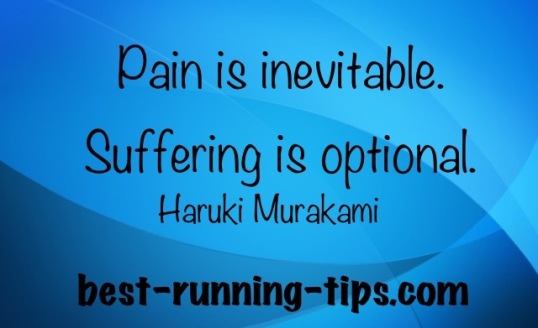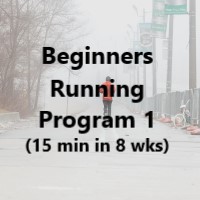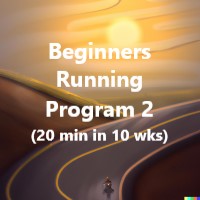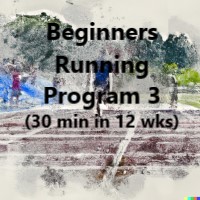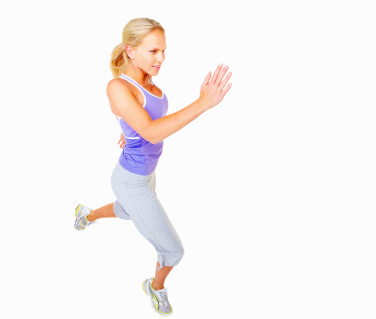Running Tips for Weight Loss
The Six Metabolism Boosting Weight Loss and Running Tips You Need
Have you turned to running as the ultimate answer to weight loss?
But now you are questioning its effectiveness?
Let me help you further.
Running is one of the best ways to help you lose weight. But it is not the only thing.
There is another important thing to consider and that is your diet. Keep eating more than your required calorie intake in a day and your body won't be able to burn the extra calories unless you work extra hard as well.
So, I know you want to learn about stuff like...
should I run fast or slow, should I run in the morning or at night, etc. But you know, in the scheme of things, all of that is less important than your diet. It's all about making sure that you run and combine your running with a proper diet.
So, on this page I'd like to start with a healthy dose of diet/eating tips and then we'll move on to the running tips...
Running Tips for Weight Loss #1: Learn About the Energy Equation
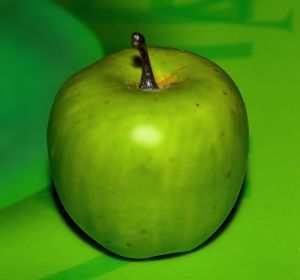
How much energy you use depends on what you do during the day.
Eating provides your body with energy. Again, how much energy you actually take in, depends on what you eat and how much.
Now, at the end of the day you have done one of two things:
When you burn more energy than you have taken in, your body needs to resort to burning the fat in your body for extra energy.
This leads to weight loss. Understanding the energy equation is the first part of your weight loss journey.
It's not about bone density,
genetic factors and other
things. Sure, they can be contributing factors or they can make it
harder for you.
But in the end, it's all about how
much energy you burn and how much energy you take in.
And these are factors that are within your control: via exercise and
diet.
Running Tips for Weight Loss #2: Determine Your Daily Caloric Needs
Energy gets measured in calories or kilojoules. It's just a unity of energy, like metres and centimetres or inches and feet is how you measure distance. There are different formulas to determine how much energy you need per day.
A general rule is that females need about 1,800 - 2,000 calories per day and males about 2,200 to 2,500 calories per day to stay at their current weight doing their normal activities. A good tool is available on MyFitnessPal.com which is based on your age and gender.
Now, in order to lose weight you need to create a calorie deficit. You need to burn more than you take in. You can do this by reducing the amount you eat or you can do this by exercising, like running.
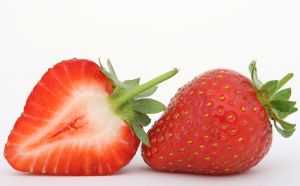
In order to lose between 1 lbs - 2 lbs per week you need to have a daily calorie deficit of about 500 calories. So suppose your normal intake to stay at your current weight is 1,800 calories.
Then in order to lose 1 - 2 lbs per week you need to create a 500 calorie deficit per day. You could do this by eating only 1,300 calories per day (not a lot). That is very hard; I'd say not sustainable. When you are severely restricting your calorie intake, you also run the risk of your body going into starvation mode. Simply put, it will just stop working properly in order to burn less energy. Meaning that starvation will not help you lose weight.
This is where running comes into the picture.
Check out my Calories Burned Calculator to work out how many calories you burn by running 1 mile, 2 miles, etc.
Running (or other forms of exercise) help you burn more energy. A combination of sensible eating in which you are conscious of, but not obsessed by, the amount you eat and exercise can lead to sustainable changes.
Once again, for a useful tool for calorie counting, I'd recommend giving MyFitnessPal.com a try. It is a helpful tool for a couple of weeks or a month to get conscious about portion control and what foods have more or less calories in them. Trust me, when using it, you become very conscious of what you are eating and what the impacts of that are on your daily total. My advice would be to use it as an education tool. Don't get obsessed with it to the point that you lose a lot of joy in your life. Find a sensible balance between diet and exercise and focus on sustainable, steady, small steps forward.
Running Tips for Weight Loss #3: Balance Carbs, Protein and Fat
There are many different theories out there about how much carbohydrates, protein and fat people need in their daily diets. A range often advocated is 40% carbs, 30% protein, 30% fat, with other sources making the carb-content a little higher (e.g. 50/25/25 or even 60/20/20).
In my opinion, I see most mistakes made with taking in too many carbs and avoiding fats at all costs. In the end, you need to make sure you get a good mix of everything inside of you. You need your carbs for pure, raw energy, but protein and fat are important too. Protein helps in muscle repair and fats help in digestion and keeping you feeling full for longer.
Make sure you focus on so called "good fats", the ones you find in nuts, avocados and olive oil and not so much on the ones found in deep fried snacks. See more on this on the runner's diet page.
Running Tips for Weight Loss #4: Stay Away From Sugar

Sugar intake is linked more and more to the current increasing rate of obesity.
For decades and decades the main reason for obesity has been believed to be fatty foods.
However, sugar has got much of the same effects as unhealthy fats.
It increases the fatty acids in your blood which we can refer to as "porridge in your arteries". This can become the cause of stroke, heart disease and other cardio vascular problems.
And, contrary to fat, it bypasses some body alarm signals. So the body does not recognise it is full. The result? We keep on eating and get fatter.
A good book to scare you away from sugar is the book Sweet Poison. In this book, the author provides a chilling picture of the influence of sugar in our diets. Now, I already didn't eat candy or cookies, only by rare exception. But now that I have read the book, I have banned pretty much all sugar from my diet. That means:
The only products with sugar I regularly eat are fruits like apples, oranges and mandarins. Fruits contain a lot of sugar. And they will cause an increase of the fatty acids in the blood, but the fibre in fruit helps remove those fatty acids. You don't get the same benefits from drinking fruit juice. Fruit juice provides you with plenty of sugar, but hardly any fibre.
And there is no such thing as good sugar. Many foods get marketed with "only natural sugar", or "no added sugar". Cereals are terrible with this. So many of them get advertised under the guise of being healthy.
Read the label and work out how much sugar is in there.
More than 10 grams of sugar per 100 grams of product? Then I would leave it on the shelf of the supermarket.
Running Tips for Weight Loss #5: Beware of Low-Fat Products
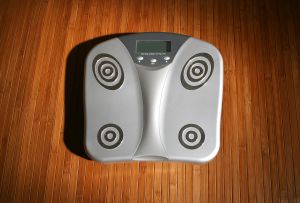
When you are running for weight loss, be really careful with low-fat products. "Low fat" usually means "more sugar".
Next time you go to the supermarket and you have got a few minutes, take the acid test. Grab a "full fat" and "low fat" version of a product, e.g. peanut butter and compare the sugar content.
For many products you will find that the "low fat" product does, indeed, contain more sugar. In some way it is logical. To compensate for that loss of fat, they need something else to keep the taste up.
So, just be aware of that "low fat" hype the next time you are in the supermarket. Low fat does not necessarily mean healthy.
Running Tips for Weight Loss #6: Run/Walk
Finally, finally, finally, we are getting to the part in which we are talking about running.... Five tips about food, one tip about running... You must feel like I am pulling your leg... No, I am not trying to. But I do hope it demonstrates the importance of diet in the quest for weight loss.
Now, onto the running.
Starting to run, especially when you do have significant weight to lose can be daunting and can be very hard.
How can you ever start to run when your heart is already racing after you have only run a very short distance?
The trick is to start by doing a combination of running and walking. Start off by just walking for 10 minutes. Then the next day walk 9 minutes and run 1. Then the next time you walk 4, run 1, walk 4, run 1. Etc. These are just examples, you can do this in any way you like.
It will take a few weeks, but before you know it you will be running 2 minutes non-stop, then 3 minutes non-stop etc.
The walking is very important. Why? We want to go further. We don't need to go faster, just further.
The further you run, the more calories you burn.
As we already covered under running tip #2, we want to keep on burning those calories.
Luckily, on this site I have got a number of excellent run/walk programs available. Oh, it's not just me calling them excellent by the way. I get regular messages from users of the programs who tell me how happy they are that they have been able to finish the programs!
Check them out here:
Follow these tips and you will find that
running for weight loss is more effective than it has ever been.
The key to achieving weight loss by running is simple: it is not about running only, your nutrition plays a vital part in this as well.
Even though you could be very disciplined with your exercise, you should also be disciplined with your diet to ensure successful weight loss.
I know this is easier said than done, that's why it is simple, but not easy! I hope this page helps you identify some small changes you can start making. In the end, it's about achieving a sustainable balance between exercise and healthy eating. I hope this page helped in that regard.
The key to achieving weight loss by running is simple: it is not about running only, your nutrition plays a vital part in this as well.
Even though you could be very disciplined with your exercise, you should also be disciplined with your diet to ensure successful weight loss.
I know this is easier said than done, that's why it is simple, but not easy! I hope this page helps you identify some small changes you can start making. In the end, it's about achieving a sustainable balance between exercise and healthy eating. I hope this page helped in that regard.
Home > Running Tips > Running Tips for Weight Loss
What's New?
-
In the Army - Improving my 2 Mile Time
I am a 36 year old male who just joined the army. I have not run any long distance so I tried on my own to train and was doing ok but my times are still -
Marathon Diet - Improve Nutrition to do Better at the Marathon
I have got a question about my marathon diet. I have been an athlete all my life; mostly a runner, but cycle long distances sometimes. I am training -
Beginners Running Program 3 - Go from 0 to 30 Minutes of Running in 12 Weeks
The third beginners running program of Best Running Tips might be the best one. It is definitely the most popular. Get from couch to 30 minutes of solid running in only 12 weeks! -
Calories Burned Calculator - Calculate the Calories Burned While Running with This Calculator
This calories burned calculator calculates the calories burned while running, based on your weight and the distance you ran. -
Asthmatic Non-Runner With a Need to Run - 1.5 Miles in 13 Minutes
Truth be told I am NOT a runner. I can walk a 14 minute mile all day. But running, not me. I have had asthma since I was a child - severe through all -
Second Half Marathon in a Month - Should I Run It or Not?
Hi, I ran a half marathon a month ago, but have not done any great distances since, 6 miles max. I'm thinking of doing a half marathon this Sunday -
Running a 5k - Can I Be Faster at 30 Than I Was at 18?
I started running at 13 in high school. I ran cross-country, indoor and outdoor track. My track coach was very informed and my PRs were 800 - 2:22, -
Faster Minute Mile for 5K races
I'm 40 years old and I started to run consistently four months ego. My running pace went from 9 minutes miles to 7:30 minute miles in a 5k. Is it realistic -
I Need a Good Marathon Running Program
I am devastated. I ran my second marathon last weekend. I ran a marathon six months ago as well, but at about the 19-20 mile mark my legs cramped up... -
Is 20 to 30 Training Miles Enough to Run a Half Marathon
I have been a committed runner for a year and a half now and have completed two half marathons with over a dozen 10k races! I have been keeping running
